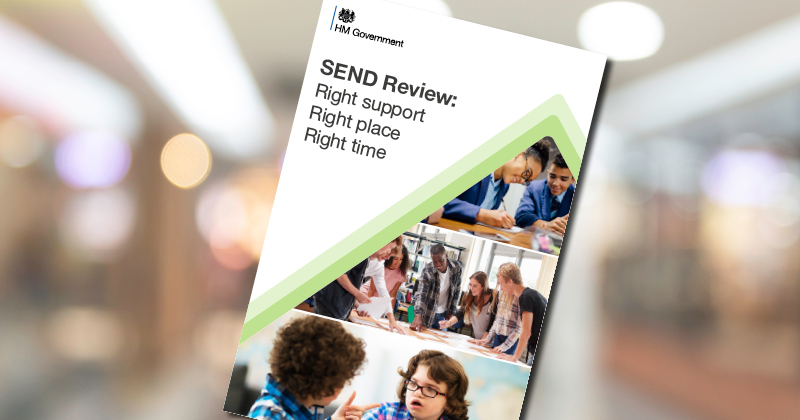The green paper offers scant support for older learners and has a narrow focus on employment outcomes, writes David Ellis
The initial flurry of headlines with the launch of the SEND green paper a few weeks ago has settled and we have had time to digest, reflect and dig deeper into the 82-page paper.
We clung to the hope that our initial misgivings would be quelled as we drilled down to the detail, but that is not the case.
In fact, the more we read, the more alarm bells started to sound.
As a reminder, the Department for Education has promised that the green paper will provide “excellent provision from early years to adulthood”.
But one of my biggest concerns is that there is scant support in the proposal for 18-25-year-olds with SEND, especially those with complex needs.
The chapters that consider further education and preparation for adulthood speak strongly of a system that only recognises contributions that can be practically realised.
Furthermore, worth is measured in terms of economic contribution, drawing a direct relationship between economic ends and the social worth of an individual.
The more we read, the more alarm bells sound
This feels like policymaking driven by ideological values, where social citizenship expectations for people with disabilities are defined in relation to the economic cost and benefits to the state.
This ultimately constrains the way in which young people with disabilities can imagine their futures.
While we welcome the presumption of employment for people with disabilities, the over-emphasis on employment fails to reflect the diversity of children and young people with SEND and the breadth of outcomes that should be celebrated.
By constructing the narrative in this way, DfE may have unwittingly created a mechanism whereby the outcome an individual aspires to might not ‘fit’ within the narrow options presented in policy narratives. In turn, this potentially reduces the individual’s entitlement to that outcome.
It acknowledges that “some young people with more complex needs will require different forms of support as they move into adulthood”.
We would wholeheartedly agree. But this glimmer of hope is quickly extinguished as the paper states there are situations where EHCPs are “retained beyond the point at which a young person can achieve more within an education setting”.
Does this mean that the government no longer values post-18 SEND education if it does not have a ‘work’ outcome? Surely everyone has the capacity to learn given the right support and opportunity.
Our experience shows that young people aspire to the broadest range of outcomes as they transition to adulthood.
Well-planned and delivered education programmes for people with complex disabilities do result in significant progress for a wide variety of young people that we work with.
Young people go on to achieve an increased level of independence in their lives through both their living choices and by taking part in their local communities.

As a specialist college, at National Star we have valuable experience of brokering multi-disciplinary transition packages including housing, care and therapy, representing the adult lives chosen by young people with disabilities.
Value is achieved through the long-term impact on health, wellbeing, aspirations and life choices of young people with complex disabilities.
The consultation questions are incredibly narrow and further reflect that the DfE is looking at SEND through the lens of cost. Instead, ministers should be seeking ways to create a holistic system that provides “excellent provision from early years to adulthood” for all children and young people with SEND.
Despite the aspirations of the 2014 Children and Families Act and all it promised, the SEND system is broken and doesn’t meet the needs of those it is designed to support.
This consultation does not repair that system but concentrates on ways of tackling the cost of SEND – with particularly little ambition for those aged over 18.
In this sense it is a missed opportunity for sharing best practice and developing creative, cost-effective solutions for learners with complex needs.
The governmental narrative and approach to SEND only sees it as an economic problem needing a solution.
Instead, a framework is needed that focusses on wider outcomes for people with disabilities, including how society needs to reorganise itself to become truly inclusive of them all.









Your thoughts